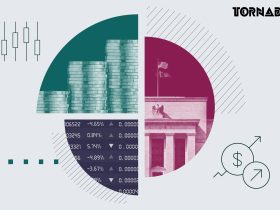Thieves contact you by phone or text to verify your identity so that you can get your stimulus check. Thieves may use your information to claim unemployment benefits in some situations.
Beware of Coronavirus Scams
Keep an eye out for phishing emails from COVID. You receive a call, a message on social media, or an email stating that you are eligible for the COVID-19 vaccination.
You’ll receive an email with a ZOOM logo informing you that a meeting has been canceled. Hackers can install dangerous malware on your computer if you click on the link. Scammers can get access to your account and any other account that has a similar login and password combination by entering your username and password, according to the article published by the Click 2 Houston page.
Contact tracking was one of the most prominent COVID-related scams in 2020. Not through email, but by phone, real contact tracers will connect.
More than 670,000 customer complaints about COVID-19 and stimulus payments had been filed with the Federal Trade Commission (FTC) as of January 17, with 73% of them including fraud or identity theft. Consumers have lost $667.2 million as a result of these frauds, with a typical loss of $400.
Phishing emails and texts, fraudulent social media postings, robocalls, imposter schemes, and other scams are being used by criminals who are closely watching the news and modifying their messaging and techniques when new medical and economic crises emerge.
Consumers are being warned about scammers offering bogus or unapproved at-home quick testing online, or charging for tests that are provided for free by medical professionals since the demand for COVID-19 tests has skyrocketed as a result of the omicron variant increase.
Internet Crimes
The FBI’s Online Crime Complaint Center has described a pandemic-fueled internet crime spree as a large aspect of which email phishing and associated frauds have been a key part of the crime.
According to research by Palo Alto Networks, a cybersecurity firm, cybercrooks have registered tens of thousands of COVID-related fake web domains. If you go to one of those bad sites, you could start getting phishing emails from people who want to steal your personal information or install malware that crawls into your computer’s files looking for passwords and other sensitive information, as posted by the AARP article.
According to a June 2021 Better Business Bureau advisory, scammers are also impersonating Federal Emergency Management Agency (FEMA) employees in texts, calls, and emails, requesting personal information to register people for a federal program to assist cover burial expenses for COVID-19 victims. The program is legitimate, but any unsolicited inquiries about it are bogus; FEMA claims that it only contacts those who have previously contacted the agency for funeral assistance.
Read more:
Experts Warn Taxpayers from Keeping Old Tax Receipts in Shoe Box















Leave a Reply